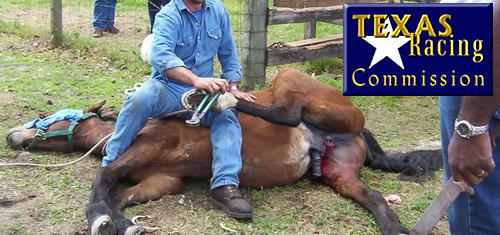 Texas horse and dog racetracks fear for their future after state regulators voted to bar tracks from operating “historical racing” machines.
Texas horse and dog racetracks fear for their future after state regulators voted to bar tracks from operating “historical racing” machines.
On Thursday, the Texas Racing Commission (TRC) voted 5-4 to withdraw permission for tracks to offer so-called historical racing machines, which allow punters to wager on video simulations of past races from which all the identifying information has been removed.
Opponents of the machines have likened them to slots, and this is a state that doesn’t even allow brick-and-mortar casinos. Proponents have argued that the machines, which offer punters the opportunity to wager between races, help boost racing purses and are therefore essential to the industry’s survival.
The controversy over the machines has been brewing since the TRC approved their use in 2014. The machines were never actually launched, as state courts ruled that the TRC lacked the authority to expand gaming options without the legislature’s approval.
Last August, the TRC resisted legislators’ efforts to force it to repeal its approval, but legislators have the power to deny funding to the TRC, putting the agency in something of a bind. The TRC and all state tracks were forced to close for one day last year before a temporary compromise was reached.
The Texas Horseman’s Partnership issued a statement slamming the “small handful of Senate leaders” for putting “extreme pressure” on the TRC via defunding threats. Executive director Marsha Rountree said the TRC’s vote had “sacrificed an entire racing industry” and predicted more horse owners would relocate their business to other states.
Texas Lt. Gov. Dan Patrick issued his own statement supporting the vote, saying he looked forward to sitting down with “responsible members” of the racing industry to discuss racing’s future in the state.
Historical racing, known as instant racing in some states, has been controversial wherever it’s been implemented. Racing’s former stranglehold on betting has dramatically eroded with the rise of alternative gaming options and tracks have adapted by morphing into pungent casinos. This shift has prompted critics to question why racing shouldn’t be subject to the same market forces as other industries that have fallen out of public favor.
Texas hasn’t gone out of its way to make life easier for the tracks, as the state is one of the few that doesn’t allow online advance deposit wagering. A 1980’s era state law requires all racing wagers to be placed in-person at a track, and this law was amended in 2011 to specifically forbid online wagering.
